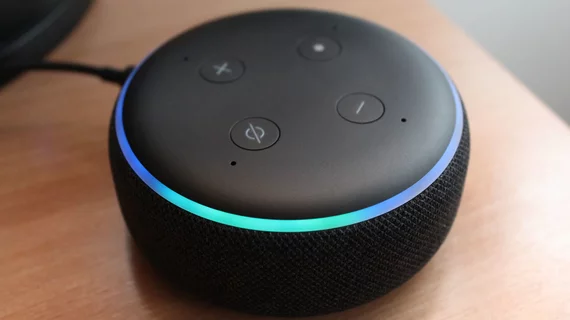Amazon donates 8K Alexa devices to communities isolated by COVID
As part of its $5 million pandemic response, Amazon is placing more than 8,000 of its Echo Dot devices across dozens of senior-living facilities in parts of California and Washington state hit hard by the pandemic.
The Big Tech giant has donated the smart speakers as part of a partnership with K4Connect, an elder-care tech company, to help COVID-isolated residents feel more connected via Alexa voice-command capabilities.
Along with supplying standard Alexa voice-command capabilities, the devices will dispense community information, facility-specific communications and access to onsite services.
In announcing the program, K4Connect says the experience is designed to let residents take to the experience with little involvement from staff.
The company’s CEO and co-founder, Scott Moody, comments that the chance to work with Amazon in helping older adults “was obvious for us. COVID-19 has quickly magnified areas where voice technology can help, and fast—people need relief now.”

